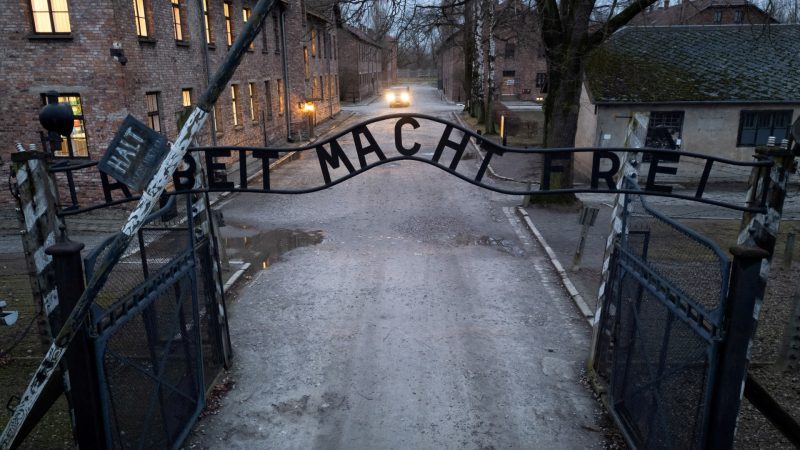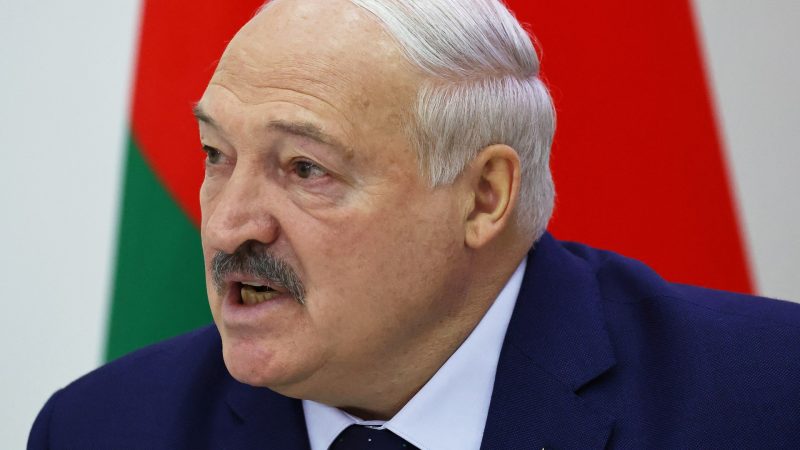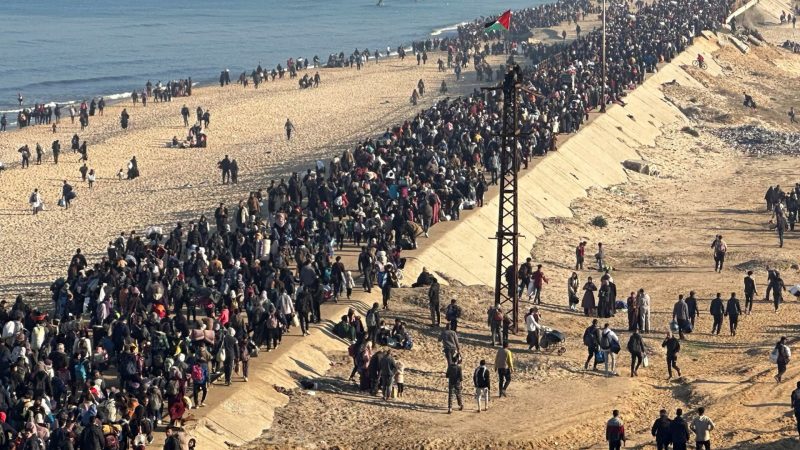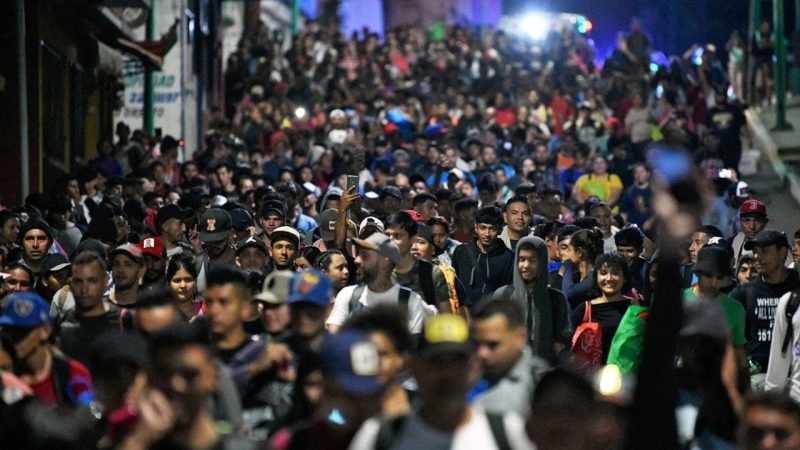What has Donald Trump promised to do on day one of his second term? | Donald Trump News
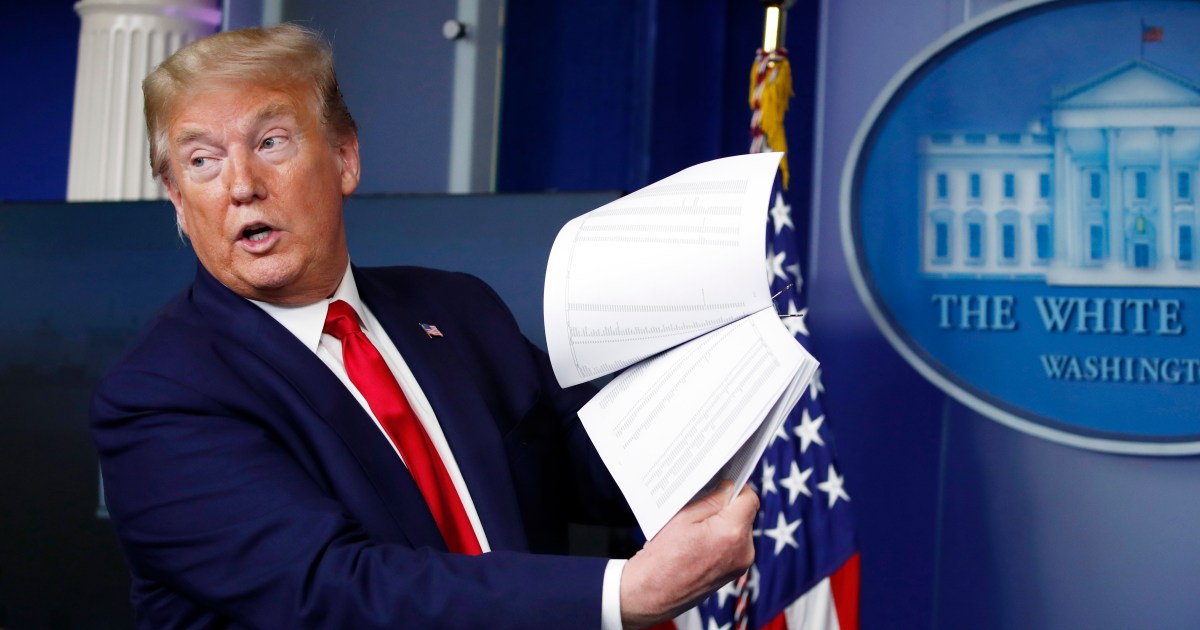
[ad_1]
Washington, DC – United States President-elect Donald Trump has pledged to be a dictator – but only on “day one” of his upcoming term.
That was the statement Trump gave to Fox News in December 2023, in the midst of his most recent campaign for re-election.
Sitting at a town hall with host Sean Hannity, Trump used a question about whether he would abuse presidential power to pivot to his long list of day-one priorities.
“I love this guy,” Trump told the audience, gesturing to Hannity. “He says, ‘You’re not going to be a dictator, are you?’ I said, ‘No, no, no, other than day one. We’re closing the border, and we’re drilling, drilling, drilling’.”
Since then, Trump’s promises for his first day in office have only grown, spanning questions on immigration to redesigning the federal government.
On Monday, Trump takes the oath of office, following a stunning political comeback in November’s elections.
The swearing-in ceremony will officially kick off his second term as president. And all eyes are on how he will wield his authority once back in the White House.
Trump is expected to sign a mountain of executive orders in the opening hours of his presidency.
Such moves are common practice for incoming administrations looking to make their mark, even if those orders are muted by congressional or legal challenges.
But with nearly 60 day-one promises and up to 100 executive orders expected, Trump’s workload as he re-enters the White House is set to be particularly hefty.
One Republican senator, John Barrasso, has already predicted a “blizzard” of executive orders, designed to “shock and awe”.
Here are some of the most consequential day-one promises Trump has made.
Mass deportations
Immigration – and reducing irregular crossings at the southern border – turned out to be one of the leading issues in Trump’s re-election campaign.
On November 4, just days before he won the presidency, Trump reiterated a pledge he made multiple times on the campaign trail: “On day one, I will launch the largest deportation program of criminals in American history. We’re going to get them out. We have to.”
Details of how Trump would undertake – and fund – such a massive operation remain elusive.
The US government estimates nearly 11 million undocumented immigrants live in the country, though Trump has said he would “declare a national emergency and will use military assets”.
Whom Trump might target is also ambiguous. Some supporters have argued that all individuals in the country without legal papers are “criminals”. Others hope Trump will limit the “mass deportation” effort to those convicted of crimes like theft or assault.
‘Muslim ban’
Another one of his first-day pledges is a throwback to his first term in office, when he signed a 2017 executive order that became known as the “Muslim ban“.
It restricted entry for travellers seeking to come to the US from several Muslim-majority countries, including Syria, Libya, Yemen and Sudan. The ban faced an avalanche of legal challenges and was ultimately nixed under President Joe Biden.
But during his new term, Trump has pledged to reinstate the ban as well as “suspend refugee admissions, stop the resettlement and keep the terrorists the hell out of our country”.
“We will ban refugee resettlement from terror-infested areas like the Gaza Strip, and we will seal our border and bring back the travel ban,” he told Republican donors in Washington, DC, in September.
“Remember the famous travel ban? We didn’t take people from certain areas of the world because I didn’t want to have people ripping down and burning our shopping centres and killing people.”
Restricting citizenship
One executive order Trump is considering for his first day back in the White House would seek to restrict who is eligible for US citizenship.
The plan has been long in the making. As far back as May 2023, Trump posted a video to his campaign website, outlining his intentions.
“On day one of my new term in office, I will sign an executive order making clear to federal agencies that, under the correct interpretation of the law, going forward, the future children of illegal aliens will not receive automatic US citizenship,” Trump said.
Under the Fourteenth Amendment of the US Constitution, anyone born inside of the country becomes a citizen, regardless of their parent’s status.
Bring the Russia-Ukraine war to an end
Trump has repeatedly maintained that the wars in Ukraine and Gaza would never have erupted under his watch.
While a ceasefire deal to halt Israel’s devastating campaign in Gaza was reached just days before Trump’s inauguration, fighting continues in Ukraine, where Russia launched a full-scale invasion in 2022.
Trump has pledged to bring that conflict to a swift end during his second term. During a CNN town hall in May 2023, Trump said the war would be “absolutely over” within “24 hours” of him taking office.
Trump has been more circumspect lately, as his second term approaches. Still, on January 13, he announced he would meet with Russian President Vladimir Putin “very quickly” upon taking office.
Trump’s team has indicated he will heap pressure on Ukrainian President Volodymyr Zelenskyy to make a deal happen, prompting concerns that could spell concessions to Moscow.
Up pressure on tariffs
Part of Trump’s vision for his first days in office is reimagining the federal government.
On January 14, Trump announced that on Inauguration Day, he would create an “external revenue service” that would “collect our Tariffs, Duties, and all Revenue that come from Foreign sources”.
Trump has called for a broad tariff programme – including up to 60 percent on Chinese goods – to jumpstart domestic manufacturing.
Trump has also threatened up to 25 percent tariffs on Mexico and Canada if they do not do more to prevent border crossings and drug smuggling.
Economists have cast scepticism on that approach, however, saying such heavy tariffs could lead to a trade war that would hurt the US economy.
Pardon January 6 defendants
Trump has repeatedly referred to those arrested for storming the US Capitol on January 6, 2021, as “political prisoners” and “hostages”.
He even promised to begin issuing pardons within the first minutes of taking office.
But Trump has since been a little more hazy about the timeline – and whether all the defendants charged in the riot would be eligible for pardons.
“Most likely, I’ll do it very quickly,” Trump told the TV show Meet the Press last month, while noting there “may be some exceptions” to his plans for pardoning them.
In addition, on Sunday, Vice President-elect JD Vance rankled some supporters by saying only peaceful protesters should be pardoned. He added there was “a bit of grey area” in some cases.
Deregulating industry
Trump has indicated he plans to pursue a wide-ranging deregulation programme when he re-enters office as well.
He blames regulations for stymieing businesses and dumping excess costs on American consumers.
“On day one, I will sign an executive order directing every federal agency to immediately remove every single burdensome regulation driving up the costs of goods,” Trump said on the campaign trail in October.
“It’s going to be the largest regulatory reduction in the history of our country, and it’s going to happen very fast,” he added.
During a news conference in December, Trump went further, pledging to cut 10 regulations for every new one added.
A new nongovernmental board he plans to set up – called the Department of Government Efficiency – has been charged with identifying regulations that can be rolled back.
Some of the regulations in Trump’s crosshairs are related to the environment.
That includes a day-one promise to undo an executive action President Biden implemented to ban offshore drilling across 625 million acres (253 million hectares) of coastal waters.
Trump also said he would immediately undo Biden’s so-called “electric vehicle mandate”, which imposes higher emissions restrictions for automakers in an effort to combat climate change.
Actions against ‘woke’ ideology
Trump’s day-one pledges have included several “culture war” issues that have long motivated his base.
That has included, as Trump put it in December, stopping the “transgender lunacy”.
The president-elect has pledged to ban transgender women from playing women’s sports. He also said he will move to ban gender-affirming care for minors, which he has called “child sexual mutilation”.
“On day one, I will revoke Joe Biden’s cruel policies on so-called gender-affirming care,” Trump said in a February 2023 campaign video.
“I will sign a new executive order instructing every federal agency to cease all programmes that promote the concept of sex and gender transition at any age.”
Trump has further threatened to immediately cut federal funding from schools and colleges that promote “critical race theory, transgender insanity, and other inappropriate racial, sexual or political content”.
Resignations for Afghanistan withdrawal
In the reality TV show, The Apprentice, Trump crafted a persona as a tough-talking real estate baron with ruthless business acumen.
His tagline, “You’re fired,” followed him into the political sphere.
Even on the campaign trail, Trump regaled audiences with his plans to fire those he considered incompetent.
And as he envisioned his first day in office, he told audiences he planned to seek accountability for the chaotic withdrawal of US troops from Afghanistan in 2021.
Trump had forged an agreement in 2020 with the Taliban to peel back the US presence in the country. But as US forces receded, the Taliban launched an offensive that toppled the fragile US-backed government.
A hasty evacuation followed the fall of the capital of Kabul, during which a suicide bombing killed 13 US soldiers and an estimated 170 Afghan civilians.
Trump has blamed his successor Biden for the deaths, though a 2023 report indicated both leaders bore responsibility. But Trump has persisted in pointing the finger elsewhere.
“We’ll get the resignations of every single senior official who touched the Afghanistan calamity, to be on my desk at noon on Inauguration Day,” he said in Michigan in August. “You know, you have to fire people. You have to fire people when they do a bad job.”
[ad_2]
Source link

